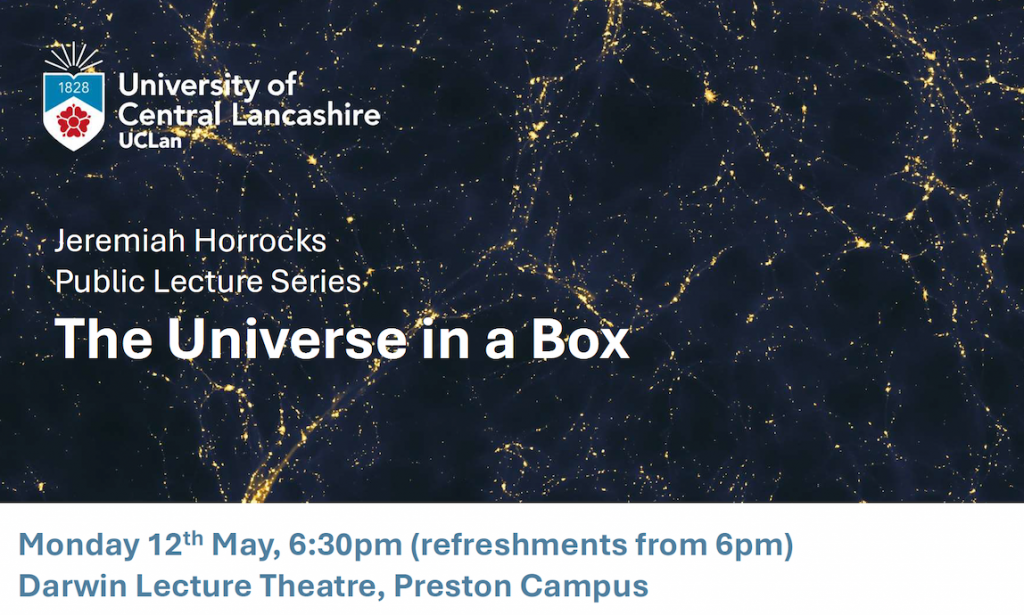
Abstract:
Computer simulations of the universe have been in common use since the 1980s, and are now a vital tool in helping us interpret data from increasingly powerful telescopes. Amongst other things, simulations have helped establish that 95% of the universe is in invisible forms, now known as dark matter and dark energy. This lecture will take a critical look at the history of trying to capture space inside a computer, at how modern simulations work, and how in the future they will help us identify what dark matter and dark energy really are.
Andrew Pontzen is a professor of cosmology at Durham University’s Institute for Computational Cosmology. His research concerns how structure formed in our universe, from its opening moments to the present day. He has written for New Scientist, BBC Sky at Night, and BBC Science Focus; lectured at the Royal Institution; appeared on BBC, Amazon Prime, and Discovery Channel documentaries; and contributed to BBC Radio 4 programmes including Inside Science and The Curious Cases of Rutherford & Fry. He is also the author of The Universe in a Box, which dives into the role of simulations in cosmology and beyond, recently published to critical acclaim
Book your free tickets on Eventbrite.
For more info contact Prof Victor Debattista
